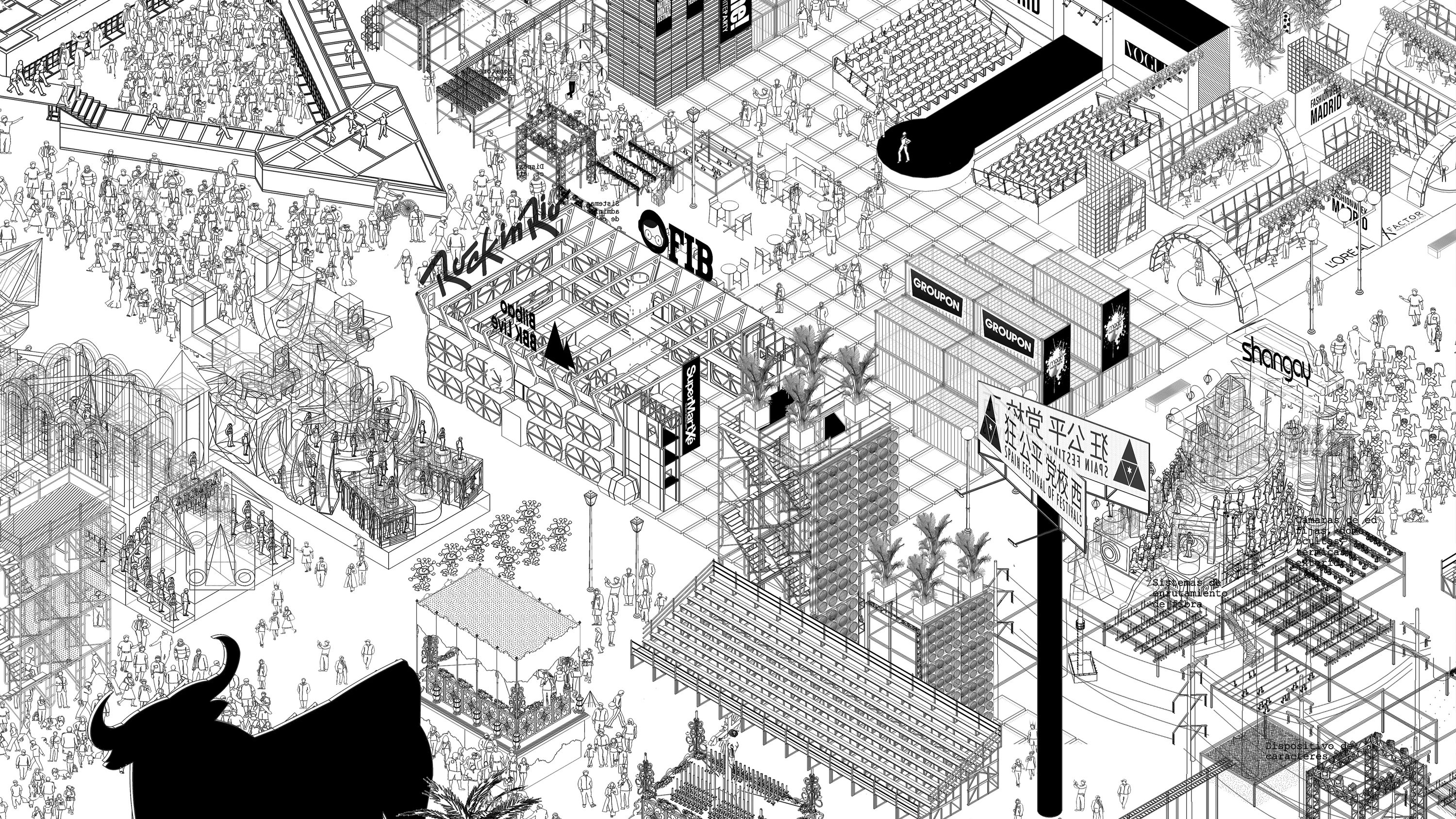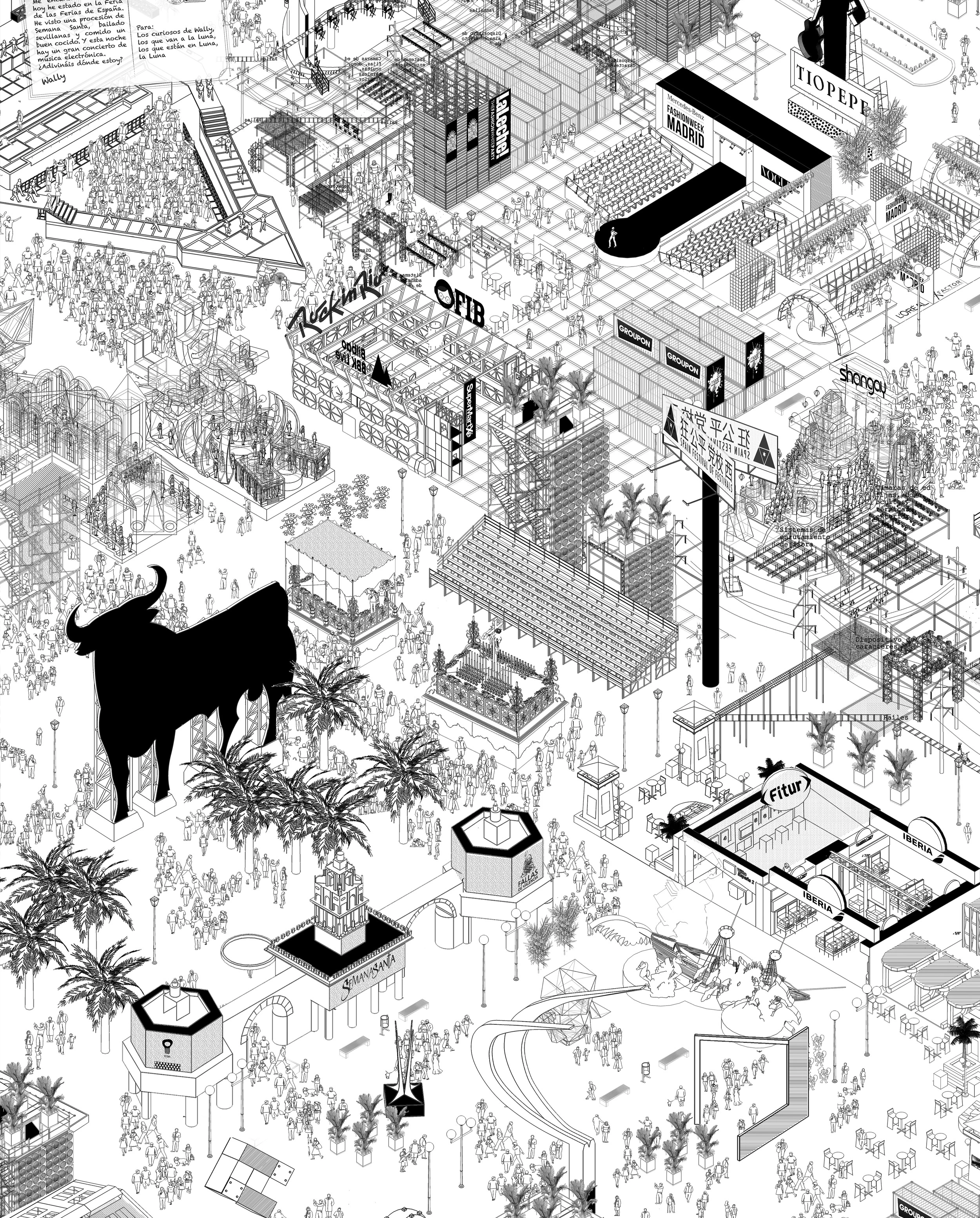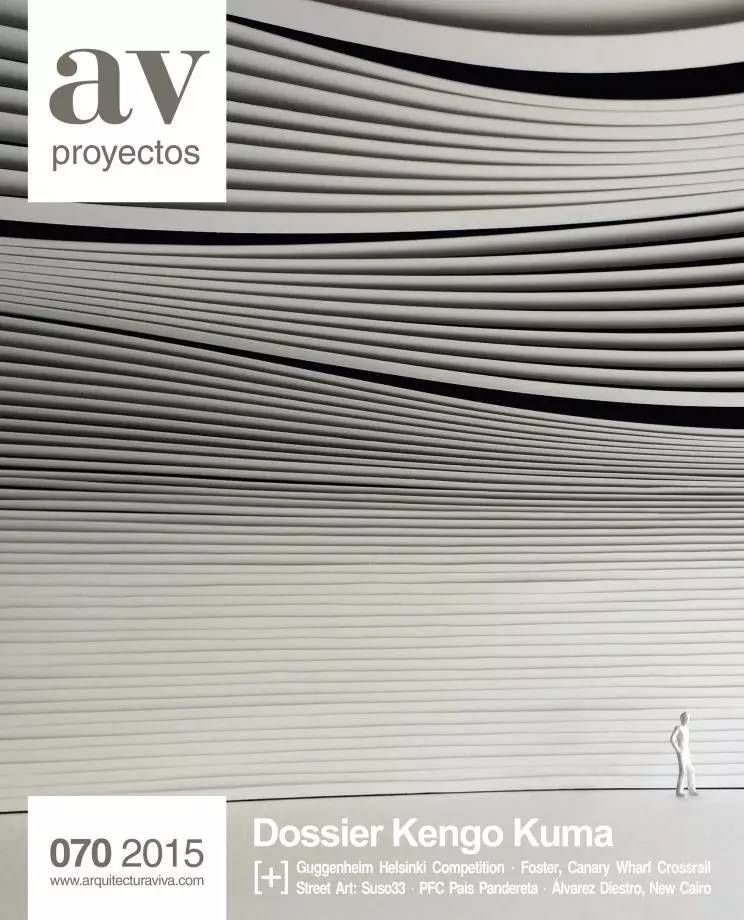País Pandereta
ETSAM With Honors- Architect Carlos D. Monedero
- Type Landscape architecture / Urban planning
- Date 2015
- City Madrid
- Country Spain
País Pandereta analyzes the real estate bubble in Spain through a detailed study of the residential developments that emerged after the urban action programs (Programas de Actuación Urbanística or PAU), undertaken in Madrid in the years before the housing market crisis, and proposes intervening in these spaces through the creation of the so-called raverbenas, events that emerge from a combination of Madrid’s typical street festivals and the usual themes associated to rave parties in Europe. Carlos D. Monedero earned a magna cum laude distinction for his graduation project at the Madrid School of Architecture (ETSAM), which he presented this past month of May.
Offering an alternative to the obsolete PAU (urban action programs) of the Madrid periphery, País Pandereta proposes a place for ecstasy and joy, the result of the combination of the traditional verbena and rave parties.
After determining which areas in Spain have suffered the effects of real estate speculation with miscalculated urban interventions, the project proposes a public organism called Black Society, which takes control of these lands.
The 2.0 fair, the ‘fair of fairs,’ is an ensemble that includes motley elements such as performance stages, rides, mechanisms and programs, and that rises as a strategic reaction to complex urban issues and as an expression of cultural identity.
If the theoretical program is the ‘software’ of the project, the ‘hardware’ refers to the physical aspect, conceived as a repertoire of building blocks and a network for the distribution of water, energy, and logistical mechanisms.
In one big event the project mixes different traditions and icons of Madrid’s popular culture, such as the chotis, the zarzuela or the violeta candies, with elements typically associated with rave parties like music, technology and substances...[+]
País Pandereta
Arquitecto Architect
Carlos D. Monedero
Tutora Mentor
Victoria Acebo
Colaboradores Collaborators
Ester Corral y Artes Verbénicas (Mario Marcol, Luis Tausía, Pelayo Rocal)







